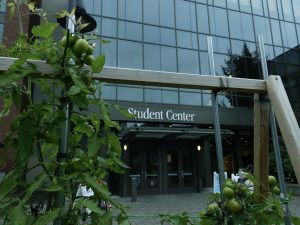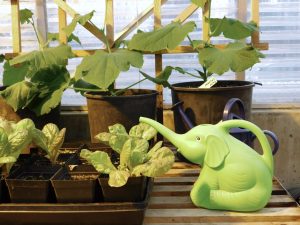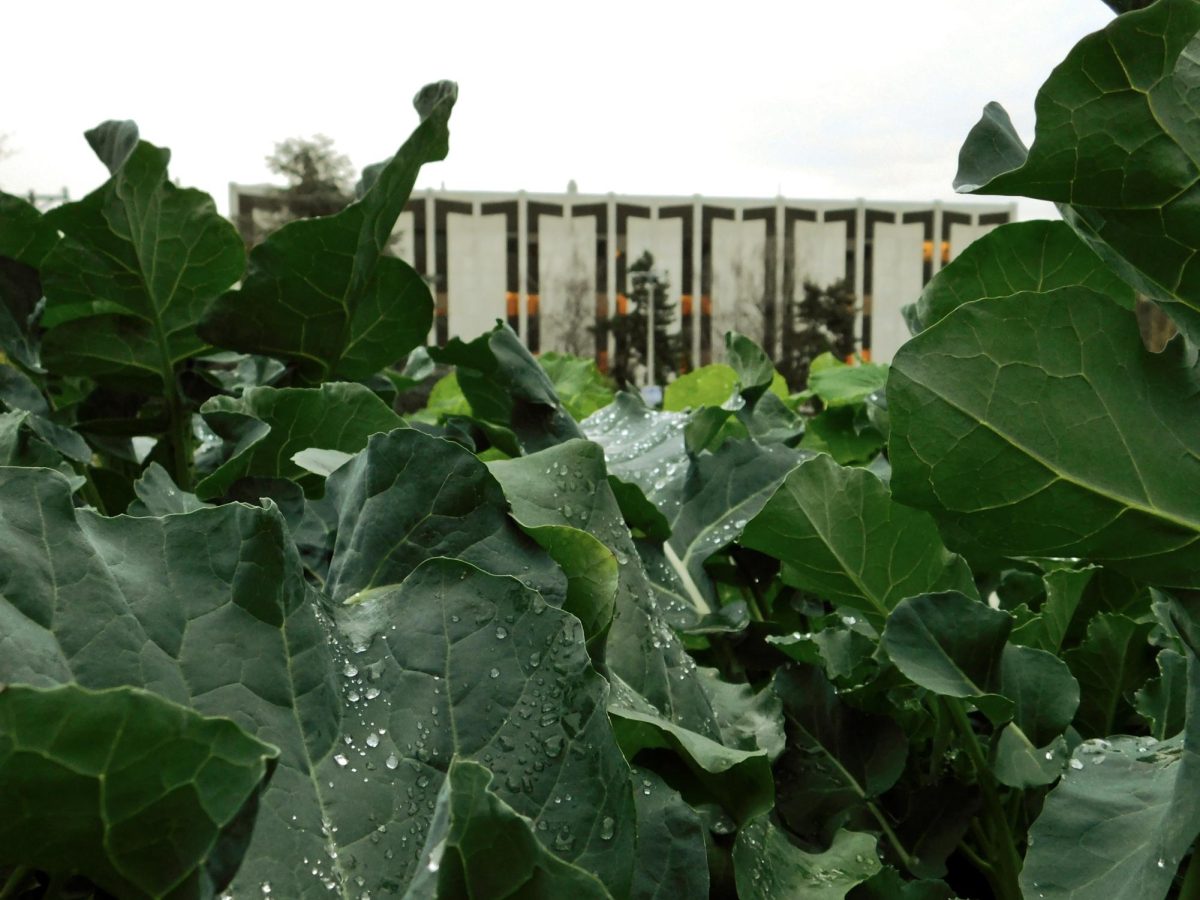
For students experiencing food insecurity, finding affordable groceries in Seattle can prove a challenge. Fresh produce is one of many groceries rising in price across Seattle, and growing food outside can seem like an impossible dream in the city. However, through Seattle U’s Edible Campus Initiative, students and community members can access fresh fruits and vegetables year-round, grown right on campus and made available at the Seattle U Food Pantry.
Edible Campus gardens are located all across Seattle U’s campus. Between the pea patch along Broadway, the herb garden overlooking Logan Field and the orchard behind the Public Safety building, there’s a splash of deliciousness in every corner. Pears, figs, garlic, blueberries, beans, lettuce, eggplants and kale are just a few of the fruits and vegetables growing across Seattle U’s campus. Among these gardens is also a greenhouse located in the 1313 Columbia Lot that allows gardeners to grow food year-round, and currently houses student favorites such as tomatoes, lettuce and cucumbers.
This produce grown in Edible Campus gardens is harvested by student and staff gardeners involved with the program, then donated to Seattle U’s Food Pantry, run by the Health and Wellness Center and located in PAVL 150 next to Bellarmine Hall.
Ben Williams, staff gardener and fields assistant who is primarily responsible for running the Edible Campus program, creates and cares for the gardens.
“We are always open to suggestions and ideas for the types of things that we grow,” Williams said. “We really are trying to cater what we grow to the needs and wants of the campus community and the patrons of the food pantry.”
Aoife Kennedy, a fourth-year environmental studies major and student employee on Edible Campus, is glad to be involved with a program that directly and positively connects with students.
“I love the opportunity to provide fresh produce to people on our campus and to see that very tangible net output,” Kennedy said. “I also go to the food pantry. It’s super cool for me to see the produce that we’ve grown, and to know that people are getting fresh veg in the middle of winter.”

Student involvement is integral to the success of Edible Campus, and student-driven projects to improve on-campus gardens are frequent within the program. Recently, a student gardener built a brewer for compost tea, a liquid extract of compost filled with micronutrients beneficial to plants. Student gardeners have implemented rain barrels to fuel lush gardens while conserving water and built raised beds to provide more space for growing. Williams and student gardeners have given tours to classes with an environmental focus at Seattle U, and even to students from the Edible Campus program at Evergreen State College in Olympia, Wash.
Humans aren’t the only ones enjoying the spoils of Edible Campus, and gardeners are thorough in protecting plants without using harsh chemicals. Carding through individual lettuce leaves to squish uninvited aphids is one of many labors of love completed by gardeners. The copious on-campus rabbits provide another destructive yet whimsical hurdle.
“You get to know individual rabbits and what they like,” Williams explained. “We had beans and peas unprotected one year, and there was a rabbit who ate the peas and chewed on the beans a little bit, but just didn’t like them. Sometimes I’ll see them on their tippy-toes, just standing up and chewing at a tomato.”
Despite these challenges, Seattle U gardeners continue to provide fresh produce for Seattle U’s community, educating involved students along the way with experience that can be applicable to their future careers. Ruby Valla, Seattle U alumnus and former grounds employee who worked on Edible Campus, was able to get a job working for Wakulima, a non-profit that supports immigrant farmers in the Puget Sound region, through Edible Campus and Food Pantry connections.
“Seattle U is really good at providing on-campus job opportunities that can really align with your career. Even though [Edible Campus] was a job, it was one of the most important parts of my education at Seattle U,” Valla said.
With grocery prices ever on the rise in Seattle, accessible food can alleviate a significant financial burden on students and community members. Thanks to Seattle U’s Edible Campus program, perhaps you too can channel your inner rabbit and nibble on a tomato grown in our collective backyard.
For more information, visit the Edible Campus Instagram and Seattle U webpage.
For suggestions or requests for Edible Campus, email Ben Williams at williabe@seattleu.edu.








